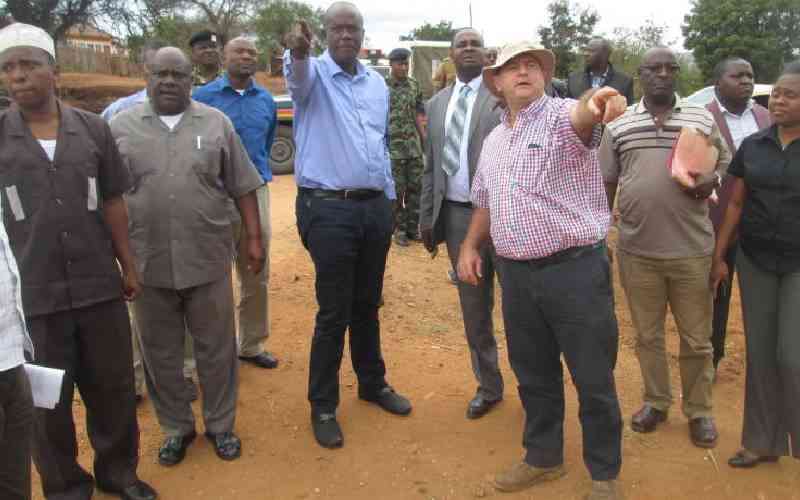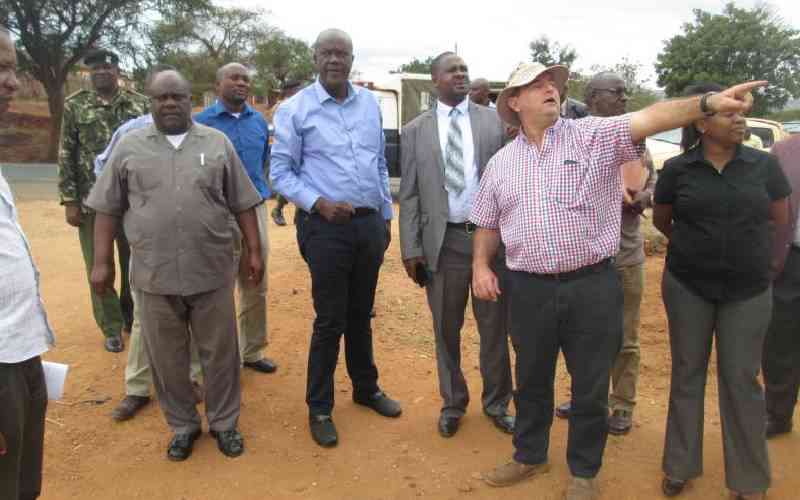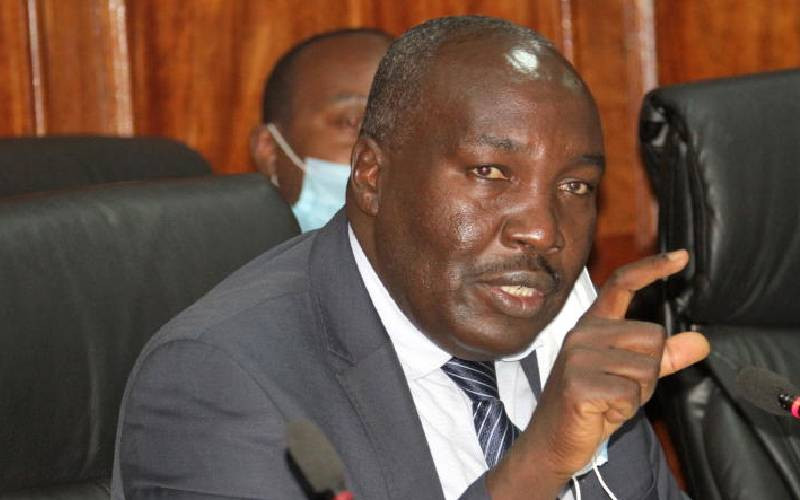Land reforms in line with the Constitution remain a nightmare following poor sector budgetary implementation.
Land sector budgets have over the years been poorly implemented with the Lands ministry returning a whopping 30-40 per cent of its development fund allocation to the Treasury.
Therefore, major anticipated reforms that are beneficial to citizens are openly not being implemented. For instance, commitments by the Government to resettle squatters over the past decades are yet to see the light of day.
Last year, the ministry said it has been unable to resettle squatters over the last five years following insufficient funds. According to Economic and Social Rights Centre (ESRC) acting Executive Director Pauline Vatta, no money has been allocated to resolve the squatter nightmare in the 2014-2015 budget.
What would the recourse of the public be to ensure that funds are allocated to resolve the crisis?
Recently, it emerged that the National Land Commission (NLC) and the ministry are working at cross-purposes.
Duplication of functions
Mr Vatta underscores the duplication of functions saying that the NLC plans to issue 1.8 million title deeds while the ministry is planning to issue 750,000 titles during the fiscal year 2014-2015.
Title deeds aside, the Constitution has enhanced the principles of democratic governance including the element of public participation but Wanjiku is still not involved land reforms.
According to the the ESRC acting director, the ime is ripe for a cost/benefit analysis on land reforms considering the amount of resources the Government put into task forces over the years to address land reforms.
Today, the country is getting what it has so long sought – foreign investment – but in forms and terms that are exposing fractures and division among and within communities and the State. Some local communities are suffering in silence under the Government championed Vision 2030 flagship mega projects, towards elevating the country into an industrialised economy.
Take the case of locals in Isiolo who risk losing their land rights after the area was elevated to a resort city under the Lamu Port-South Sudan-Ethiopia-Transport (Lapsset) Corridor project.
Resort city
The Government mapped out 6,200 acres of land to build a resort city in Isiolo complete with oil refineries, an international airport and a highway.
Much as the mega development will attract tourists and also turn around the economy in the area, most of the community land in Isiolo has been allocated to individuals.
Stay informed. Subscribe to our newsletter
According to media reports, the norm has been irregular allocations, facilitated by illegal surveying and corruption by the surveyors and county officials.
There are also reported cases of irregular evictions, occasionally disregarding court orders issued to protect the residents.
In cases where the displaced persons are relocated, the areas they are resettled in are not ideal or conducive for human settlement.
Occasionally, some of the resettlement areas are overcrowded and plagued by land disputes, which force those resettled there to relocate again.
The right to property as articulated in Article 40 of the Constitution protects the right to acquire and own property of any description and in any part of Kenya.
The focus of the land grabbing discourse on ‘mega’ land deals obstructs processes that both con?rm concerns about ‘land grabbing’ and yet defy the associations of that term with illegality, large-scale acquisitions and the displacement of local people.
As the cancer of land grabbing continues to grow, careful attention should be directed to investment contracts that the State has signed and they implications they have on land rights and natural resources.
Given the solid land laws, it is hard to explain why the grabbing menace persists despite institutions mandated to address the vice exerting powers both under the Constitution and through Executive orders.
The Constitution introduced several changes including the establishment of a National Land Commission. Despite these efforts, there is a growing concern that land reforms in Kenya may not be attained as intended especially because of inadequate budgetary support given to the sector.
To what extent does the national budget affect the land reform process in Kenya?
 The Standard Group Plc is a
multi-media organization with investments in media platforms spanning newspaper
print operations, television, radio broadcasting, digital and online services. The
Standard Group is recognized as a leading multi-media house in Kenya with a key
influence in matters of national and international interest.
The Standard Group Plc is a
multi-media organization with investments in media platforms spanning newspaper
print operations, television, radio broadcasting, digital and online services. The
Standard Group is recognized as a leading multi-media house in Kenya with a key
influence in matters of national and international interest.
 The Standard Group Plc is a
multi-media organization with investments in media platforms spanning newspaper
print operations, television, radio broadcasting, digital and online services. The
Standard Group is recognized as a leading multi-media house in Kenya with a key
influence in matters of national and international interest.
The Standard Group Plc is a
multi-media organization with investments in media platforms spanning newspaper
print operations, television, radio broadcasting, digital and online services. The
Standard Group is recognized as a leading multi-media house in Kenya with a key
influence in matters of national and international interest.








